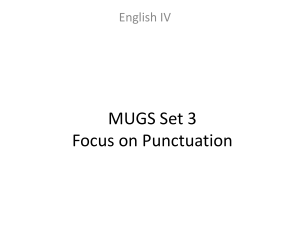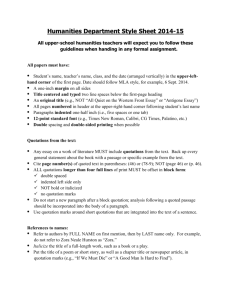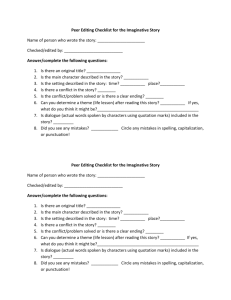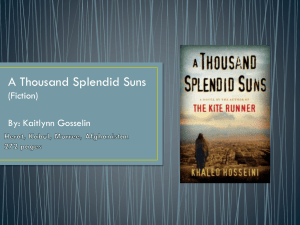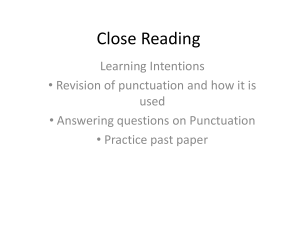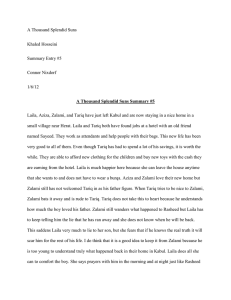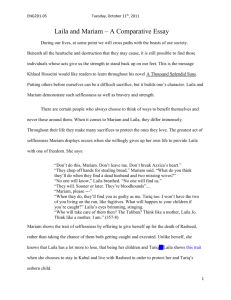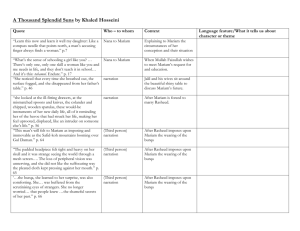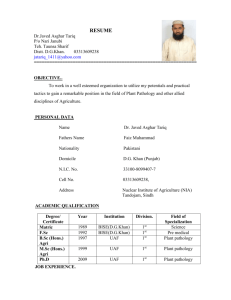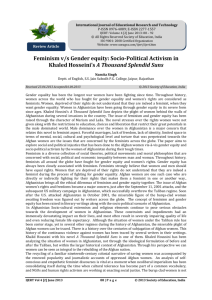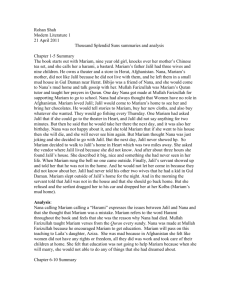HOW TO INCLUDE QUOTATIONS FOR SUPPORT (excerpt from
advertisement
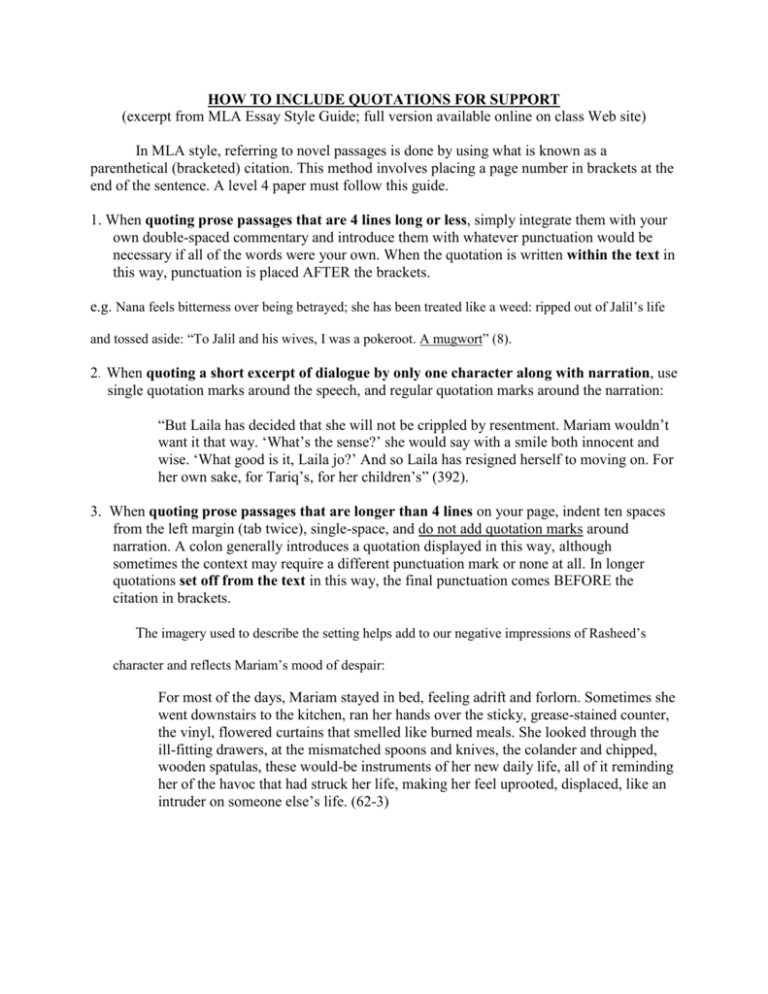
HOW TO INCLUDE QUOTATIONS FOR SUPPORT (excerpt from MLA Essay Style Guide; full version available online on class Web site) In MLA style, referring to novel passages is done by using what is known as a parenthetical (bracketed) citation. This method involves placing a page number in brackets at the end of the sentence. A level 4 paper must follow this guide. 1. When quoting prose passages that are 4 lines long or less, simply integrate them with your own double-spaced commentary and introduce them with whatever punctuation would be necessary if all of the words were your own. When the quotation is written within the text in this way, punctuation is placed AFTER the brackets. e.g. Nana feels bitterness over being betrayed; she has been treated like a weed: ripped out of Jalil’s life and tossed aside: “To Jalil and his wives, I was a pokeroot. A mugwort” (8). 2. When quoting a short excerpt of dialogue by only one character along with narration, use single quotation marks around the speech, and regular quotation marks around the narration: “But Laila has decided that she will not be crippled by resentment. Mariam wouldn’t want it that way. ‘What’s the sense?’ she would say with a smile both innocent and wise. ‘What good is it, Laila jo?’ And so Laila has resigned herself to moving on. For her own sake, for Tariq’s, for her children’s” (392). 3. When quoting prose passages that are longer than 4 lines on your page, indent ten spaces from the left margin (tab twice), single-space, and do not add quotation marks around narration. A colon generally introduces a quotation displayed in this way, although sometimes the context may require a different punctuation mark or none at all. In longer quotations set off from the text in this way, the final punctuation comes BEFORE the citation in brackets. The imagery used to describe the setting helps add to our negative impressions of Rasheed’s character and reflects Mariam’s mood of despair: For most of the days, Mariam stayed in bed, feeling adrift and forlorn. Sometimes she went downstairs to the kitchen, ran her hands over the sticky, grease-stained counter, the vinyl, flowered curtains that smelled like burned meals. She looked through the ill-fitting drawers, at the mismatched spoons and knives, the colander and chipped, wooden spatulas, these would-be instruments of her new daily life, all of it reminding her of the havoc that had struck her life, making her feel uprooted, displaced, like an intruder on someone else’s life. (62-3) 2 4. When quoting dialogue involving two or more characters, follow the convention of beginning a new paragraph for each new speaker, to make the conversation easier to follow, and indent every paragraph: The foundation of Laila’s love for Tariq is laid early, in their childhood friendship: Nine-year-old Laila rose from bed, as she did most mornings, hungry for the sight of her friend Tariq. This morning, however, she knew there would be no Tariq sighting. “How long will you be gone?” she’d asked when Tariq had told her that his parents were taking him south, to the city of Ghazni, to visit his paternal uncle. “Thirteen days.” “ Thirteen days?” “ It’s not so long. You’re making a face, Laila.” “ I am not.” “You’re not going to cry, are you?” “I am not going to cry! Not over you. Not in a thousand years.” She’d kicked at his shin, not his artificial but his real one, and he’d playfully whacked the back of her head. Thirteen days. Almost two weeks. And, just five days in, Laila had learned a fundamental truth about time: Like the accordion on which Tariq’s father sometimes played old Pashto songs, time stretched and contracted depending on Tariq’s absence or presence. (187) 5. a) When a quotation is introduced by a full sentence, end the sentence with a colon; otherwise use whatever punctuation you would use if the quotation marks were not there. b) Use no punctuation when the quotation forms part of the sentence. e.g. The image of “a fire sparkling in lovers’ eyes” helps to reflect the positive aspect of love (188). c) If a quotation ends the sentence, use a period even if some other punctuation was originally used. To cut a quotation short, change the punctuation. WORKS CITED The last page of your essay, titled Work Cited, must indicate the text you used as the source of all of your quotations, following the instructions below: Book with author of (novel, textbook, etc.) e.g. Author's surname, first name and initial. Book title. (Nearest) city publication: publishing company, year of publication. Adams, Charles L. Famous Musicians. Toronto: Wiley, 1981.

